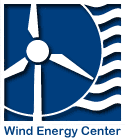Bob Darrow: From Turbines to Socioeconomical Systems: Confronting the Politics of Windpower
Philosophers of technology have a longstanding interest in how technologies and human societies shape each other, respectively. Innovation enthusiasts see homo faber as bending nature to human purposes through our creative technical potential. Technological determinists worry that the railroad rides upon us. The more common position among scholars today is that humans and their technologies are somehow co-produced, that we live in a world of hybrid sociotechnical systems. Thinkers like Thomas Hughes suggest that technological systems have momentum, but that it is still possible for human agency to slow and even arrest this momentum. How are wind energy regimes, conceived of as sociotechnical systems, produced, and what sorts of politics do they produce in turn? These systems do, indeed, have political consequences, though those politics are not so neatly determined as books like Langdon Winner's classic The Whale and the Reactor might suggest.
The potential for wind energy development around the world is enormous. In the coastal waters of the United States alone, there is enough wind potential to supply four times the existing electricity demand of the entire country. Wind development projects are being pursued aggressively around the world on all scales. According to the Global Wind Energy Council, global installed capacity at the end of 2011 had reached 238 Gigawatts, of which 40.5 Gigawatts (or 6% of the total) had been installed in the last year alone. As wind energy prices become competitive with more traditional sources like coal, we can begin to imagine an energy future in which wind power is a dominant component of many countries' energy portfolios. For many moral, political, and environmental reasons, we should perhaps make a concerted effort to realize such a future.
This visioning process must begin by recognizing that multiple wind energy futures are possible. How will the manner in which wind development is pursued affect the resulting political and cultural conditions of the communities and countries where there projects are carried out? The reverse question must also be asked: How do existing political and social arrangements at the local, national and international levels constrain the possibilities for the types of wind projects that can be realized in the coming years? The theories we have from the likes of Hughes and Winner do not leave us especially well-positioned to address these questions, because they still treat humans and their technologies as ontologically distinct categories, acting on each other from a distance. They do not sufficiently recognize the extent to which humans and technologies are entangled in sociotechnical systems. I propose studying wind energy development from an ecosystems perspective, and mapping the potential for wind power to establish new political regimes and social identities. What new political arrangements does wind make possible, and what opportunities does it constrain? How do the technical characteristics of wind turbines, the “natural” characteristics of the wind resource, the preferences and anxieties of the communities where wind farms are built, the ownership structures of the turbines and the electricity produced, the policies regulating wind energy, and a host of other factors conspire to produce specific political and social arrangements? How might we expect a world powered by wind to look different than one powered by oil? Raising these questions and mapping the range of possibilities will leave political actors better-positioned to pursue the types of development that best align with their values and goals.
IGERT 07 Nov 2013 Ryan Wallace, Kendra Ryan, and Bob Darrow from UMass Offshore Wind IGERT on Vimeo.

